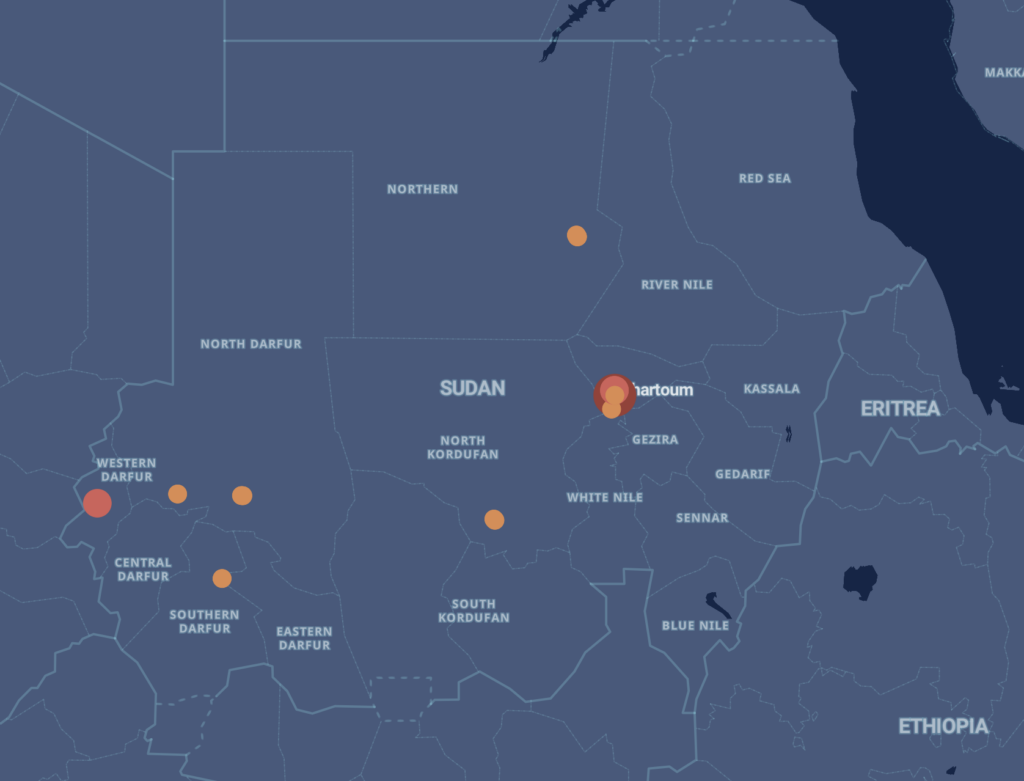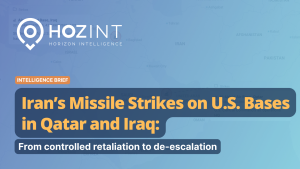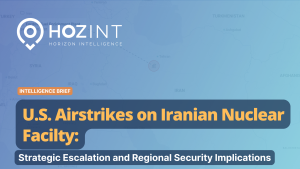On April 15, clashes erupted between the army and the Rapid Support Forces (RSF) paramilitaries, causing at least 97 deaths and 365 injured in ongoing fighting. The clashes, mainly in Khartoum and the surroundings, have extended through Sunday as RSF paramilitaries have attempted a coup against the military junta. Sudan’s Civil Aviation Authority has notified that airspace over the country is closed, with a suspension of air navigation services within the Khartoum flight information region (FIR). On April 17, the RSF claimed to have captured Merowe Airport (MWE) as the fighting continues.

Areas of major fighting in Sudan since 14 April.
The outbreak of violence was sparked by a disagreement over the integration of the RSF (Rapid Support Forces) into the military as part of a transition towards civilian rule. This was the first such incident since the Army and the RSF joined forces to oust former autocrat Omar Hassan al-Bashir in 2019,
Understanding the Root Causes of the Fighting
The fighting in Sudan is driven by a power struggle between two main factions of the military regime: the Sudanese armed forces led by Gen Abdel Fattah al-Burhan, and the paramilitary Rapid Support Forces (RSF) led by Gen Mohamed Hamdan Dagalo (aka Hemedti). This struggle has its roots in the years prior to the 2019 uprising that ousted former dictator Omar al-Bashir.
The Rapid Support Forces (RSF), originally known as Janjaweed, were established by Bashir to quell a rebellion in Darfur sparked by political and economic marginalization by Sudan’s central government. In 2013, Bashir transformed the Janjaweed into a semi-organized paramilitary force, deploying them to crush rebellions in South Darfur. During the ousting of Bashir in 2019, the RSF, led by Hemedti, cooperated with the regular military forces under Burhan. A power-sharing deal with civilian protesters for a democratic transition was interrupted by a coup in October 2021, which led to tensions between Hemedti and Burhan. Hemedti has been dissatisfied with his position as deputy on Sudan’s ruling council.
Efforts to transition to a civilian-led government after Bashir’s fall have faltered, leading to an eventual and predicted showdown, with tensions rising in recent weeks. The situation began to deteriorate on April 6th, when hundreds of protesters, led by the pro-democracy network known as “the Resistance Committees”, took to the streets of Khartoum to protest against the second postponement of the signing of a final settlement between the military and pro-democracy forces.
On April 15, gunfire and explosions were reported, as clashes break out between army and RSF forces, in Khartoum. The same day, the RSF claimed to have taken control of the Khartoum airport (KRT).
As of the time of writing, clashes are still ongoing.
How to monitor the situation in Sudan
The conflict in Sudan can be monitored via both major international news agencies (e.g. Reuters, Associate Press, etc.) and local sources and independent journalists (most of which are in Arabic).
Local sources
- Mohamed Mustafa (Journalist, Sudanese anti-coup activist )
- Kamal Shref (Sudanese journalist)
- Khalid Ewais (Sudanese journalist)




